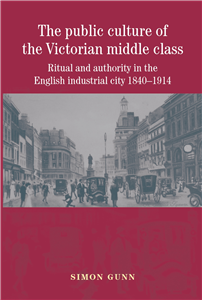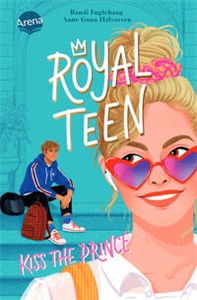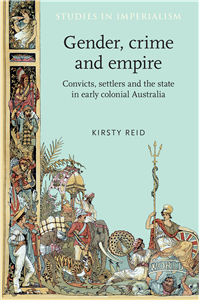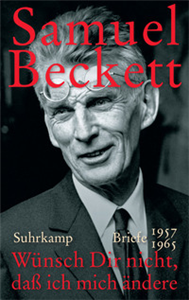Your Search Results
-
Promoted Content
-
Promoted Content
-
 Trusted Partner
The ArtsAugust 2007
Trusted Partner
The ArtsAugust 2007The public culture of the Victorian middle class
Ritual and authority in the English industrial city 1840–1914
by Simon Gunn
The public culture of the Victorian middle class looks at the creation of a distinctive 'high' culture in the industrial cities of Birmingham, Leeds and Manchester in the mid-nineteenth century and its incipient decline from the 1880s. The history of urban bourgeois culture has been relatively unexplored and under-theorised compared to popular culture. This volume therefore represents a significant contribution both to the study of middle-class cultural forms and to an understanding of the relationship between culture and power. In particular, it argues for the importance of ritualised modes of social behaviour in understanding the construction of authority in the nineteenth-century city. As well as many original arguments, the book provides a clear and useful overview of the public cultures of Victorian 'respectability'. The book will be of interest to scholars and students in the areas of social history, cultural history, urban history, cultural studies, urban studies and the sociology of culture. ;
-
 Trusted Partner
November 1971
Trusted Partner
November 1971Die Ratte im Labyrinth
Eine Science-fiction-Anthologie von Franz Rottensteiner
by Franz Rottensteiner, Marie Thérèse Kerschbaumer, Klaus Staemmler, Rudolf Hermstein, Michael Maier
Lem, Stanisl'aw: Die Ratte im Labyrinth. Deutsch von Klaus Staemmler. Colin, Vladimir: Die letzte Verwandlung des Tristan. Deutsch von Marie-Thérèse Kerschbaumer. Sturgeon, Theodore: Reife. Deutsch von Rudolf Hermstein. Gunn, James E.: Ein Ungeheuer namens Smith. Deutsch von Michael Maier. McLean, Katherine: Ein unmenschliches Opfer. Deutsch von Michael Maier. Lafferty, R.A.: Regierungsform und Brauchtum der Camiroi. Deutsch von Rudolf Hermstein. Blish, James: _. Kidd, Virginia: An der Wand der Jagdhütte. Deutsch von Rudolf Hermstein.
-
 Trusted Partner
Trusted Partner
-
 Trusted Partner
Trusted Partner
-
 Trusted Partner
October 2014
Trusted Partner
October 2014Aufrecht durchs Leben
100 Wege zum Glück
by Gunn, Anthony / Englisch Dahm Robertson, Peter
-
 Trusted Partner
February 2023
Trusted Partner
February 2023Royalteen (1). Kiss the Prince
Jugendbuch-Reihe ab 14 über eine royale Freundesclique, riskante Geheimnisse und die erste große Liebe
by Randi Fuglehaug, Anne Gunn Halvorsen, Karoline Hippe
Coming-of-Age-Reihe einer royalen Clique ab 14 über den Mut, zu seiner Vergangenheit zu stehen. Über alte Geheimnisse, neue Freundschaften und eine royale Liebe - Eine Geschichte, die zeigt, dass Liebe keine Hierarchien kennt. Mit ihrer Familie zieht Lena nach Oslo, um Abstand zwischen sich und ihre Vergangenheit zu bringen. Auf der neuen Privatschule lernt sie den Kronprinzen Karl Johan und seine Schwester Prinzessin Margrethe kennen und gehört bald zu ihrem Freundeskreis. Zusammen fahren sie Boot, feiern Partys und machen Kurztrips. Während Lenas Gefühle für den Prinzen immer stärker werden, wachsen auch ihre Zweifel. Er trägt die Verantwortung für das ganze Land, während sie von den Lügen ihrer Vergangenheit fast erdrückt wird. Kann diese ungleiche Beziehung zu einem märchenhaften Happy End führen? Der große Serienauftakt aus Norwegen von einem unschlagbaren Autorinnen-Duo! Besiege deine Ängste, feiere das Leben und stürze dich kopfüber in die Liebe. Verfilmt von Netflix Weitere Bände der Reihe:Kiss the Soulmate (2)Kiss the Enemy (3)
-
 Trusted Partner
July 2023
Trusted Partner
July 2023Royalteen (2). Kiss the Soulmate
Im Mai neu auf Netflix. Royal Romance für alle ab 14 Jahren über die königliche Freundesclique aus Norwegen
by Randi Fuglehaug, Anne Gunn Halvorsen, Karoline Hippe
Sehnsüchtig erwartet: Die Story um Prinzessin Margrethe der erfolgreichen Coming-of-Age-Reihe Royalteen, verfilmt von Netflix! Prinzessin Margrethe ist klug, schön und weiß immer, wie sie in der Öffentlichkeit auftreten muss. Doch hinter der perfekten Fassade bröckelt es: Ihre Familie bricht auseinander, jeder kämpft mit seinen eigenen Problemen. Ihre beste Freundin kündigt ihr die Freundschaft und die vergangene Halloweennacht hängt wie ein Damoklesschwert über Margrethe. Alles wäre so viel leichter, wenn es jemanden gäbe, mit dem sie all diese verdammten Geheimnisse über ihre Familie und Ängste teilen könnte. Dann wäre sie auch nicht mehr so einsam. Kein Wunder also, dass ihr Herz schneller schlägt, wenn sie eine Nachricht von Henrik bekommt, dem attraktiven Prince-Charming Dänemarks. Bestes Falling-in-love-Material! Als sie ihn endlich in echt trifft, kann sie ihr Glück nicht fassen. Er ist sogar noch perfekter als in ihrer Fantasie! Doch dann verläuft ihr Treffen ganz anders als das romantische Date, das sie sich vorgestellt hatte. Ihre Familie ist da auch keine große Hilfe, königliches Blut hin oder her. Margrethe ist klar: So will sie nicht werden. Doch auf wen kann sie sich verlassen? Die royale Fortsetzung für alle ab 14 Jahren, die nicht genug von der königlichen Clique aus Norwegen bekommen können und für alle Leser*innen von Jana Hoch. Weitere Bücher des norwegischen Autorinnenduos bei Arena:Royalteen (1). Kiss the PrinceIm Frühjahr 2024 geht es weiter mit „Royalteen (3). Kiss the Enemy“
-
 Trusted Partner
Humanities & Social SciencesJuly 2022
Trusted Partner
Humanities & Social SciencesJuly 2022Inside the English education lab
by Christy Kulz, Kirsty Morrin, Ruth McGinity
-
 Trusted Partner
Trusted Partner
-
 Trusted Partner
Trusted Partner
-
 Trusted Partner
Trusted Partner
-
 Trusted Partner
Trusted Partner
-
 Trusted Partner
Humanities & Social SciencesNovember 2012
Trusted Partner
Humanities & Social SciencesNovember 2012Gender, crime and empire
convicts, settlers and the state in early colonial Australia
by Kirsty Reid, Andrew Thompson, John Mackenzie, Martin Hargreaves
Between 1803 and 1853, some 80,000 convicts were transported to Van Diemen's Land. Revising established models of the colonies, which tend to depict convict women as a peculiarly oppressed group, Gender, crime and empire argues that convict men and women in fact shared much in common. Placing men and women, ideas about masculinity, femininity, sexuality and the body, in comparative perspective, this book argues that historians must take fuller account of class to understand the relationships between gender and power. The book explores the ways in which ideas about fatherhood and household order initially informed the state's model of order, and the reasons why this foundered. It considers the shifting nature of state policies towards courtship, relationships and attempts at family formation which subsequently became matters of class conflict. It goes on to explore the ways in which ideas about gender and family informed liberal and humanitarian critiques of the colonies from the 1830s and 1840s and colonial demands for abolition and self-government. ;
-
 Trusted Partner
Humanities & Social SciencesMarch 2017
Trusted Partner
Humanities & Social SciencesMarch 2017Gender, crime and empire
Convicts, settlers and the state in early colonial Australia
by Kirsty Reid, Andrew Thompson, John M. MacKenzie, Martin Hargreaves
Between 1803 and 1853, some 80,000 convicts were transported to Van Diemen's Land. Revising established models of the colonies, which tend to depict convict women as a peculiarly oppressed group, Gender, crime and empire argues that convict men and women in fact shared much in common. Placing men and women, ideas about masculinity, femininity, sexuality and the body, in comparative perspective, this book argues that historians must take fuller account of class to understand the relationships between gender and power. The book explores the ways in which ideas about fatherhood and household order initially informed the state's model of order, and the reasons why this foundered. It considers the shifting nature of state policies towards courtship, relationships and attempts at family formation which subsequently became matters of class conflict. It goes on to explore the ways in which ideas about gender and family informed liberal and humanitarian critiques of the colonies from the 1830s and 1840s and colonial demands for abolition and self-government.
-
 Trusted Partner
November 2016
Trusted Partner
November 2016Wünsch Dir nicht, daß ich mich ändere
Briefe 1957–1965
by Samuel Beckett, Martha Dow Fehsenfeld, Lois More Overbeck, Dan Gunn, George Craig, Chris Hirte
Der dritte Band der Briefe Samuel Becketts zeigt den Autor bei dem fast aussichtslosen Versuch, sowohl den Anforderungen, die sein wachsender internationaler Ruhm mit sich bringt, gerecht zu werden als auch dem Bedürfnis nach Alleinsein und Ruhe, woraus allein neue Texte entstehen können, Raum zu geben. Beckett schreibt in dieser Zeit Hörspiele ( Alle, die da fallen und Aschenglut ), ein Fernsehspiel ( He, Joe ) und das Drehbuch für Film . Nach einer Unterbrechung von zehn Jahren entsteht wieder ein Roman, Wie es ist . Während er sich in der Vergangenheit zurückhaltend und spärlich zum eigenen Schreiben äußerte, widmet er nunmehr der Beschreibung und Erläuterung des neu Entstehenden Brief um Brief. Zum ersten Mal tritt eine Frau als seine wichtigste Briefpartnerin in Erscheinung. Eine Fülle lebendiger, eindringlicher Schreiben an Barbara Bray, Hörspielredakteurin der BBC, bildet das Zentrum dieses Bandes. Ein ausführlicher Einleitungsteil informiert über den zeit- und literaturgeschichtlichen Kontext. Anmerkungen liefern detailliert Erklärungen. Ein Register erschließt den Band. Separat werden die wichtigsten Briefpartner vorgestellt.
-
 Trusted Partner
Trusted Partner
-
 Trusted Partner
Trusted Partner
-
 Trusted Partner
Trusted Partner






























